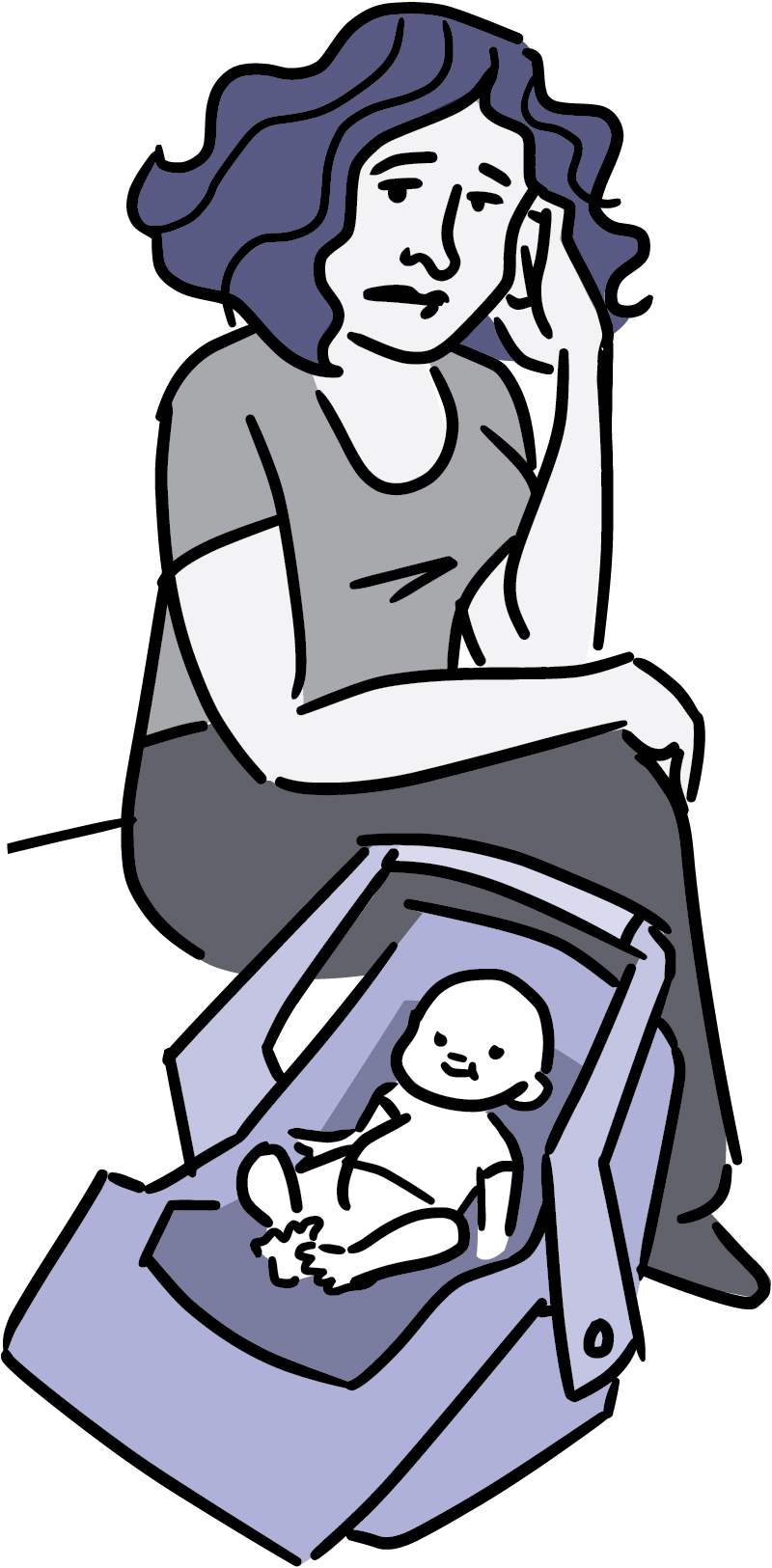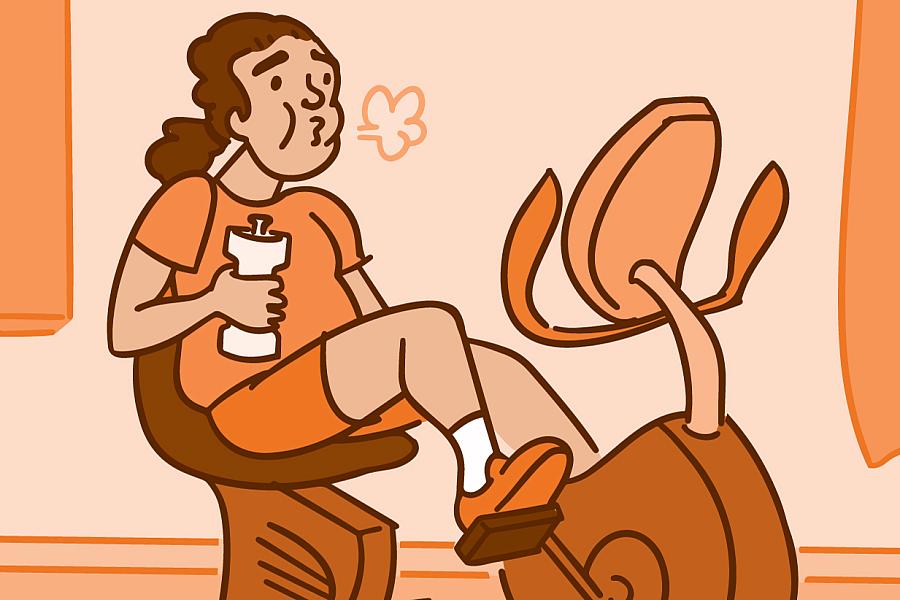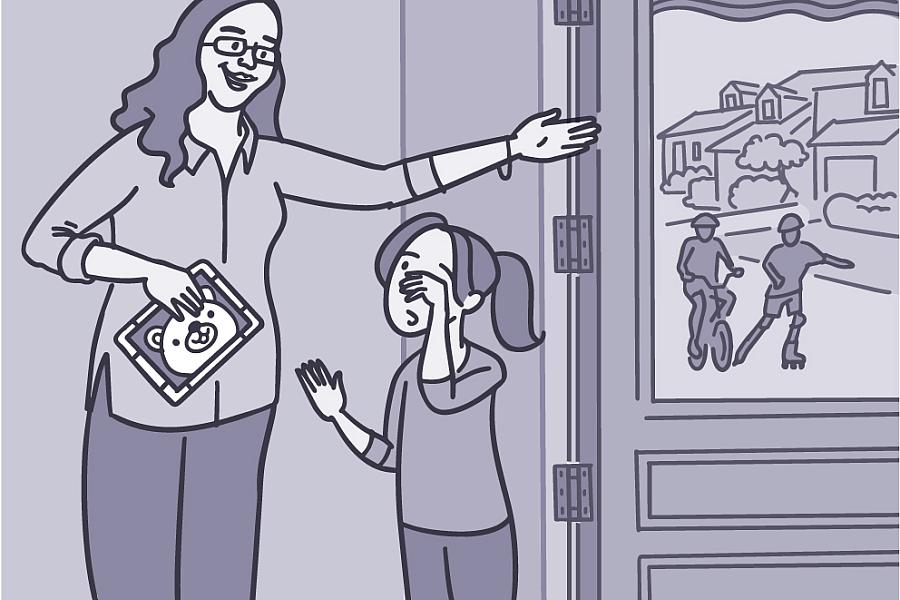When a Bundle of Joy Brings Sorrow
Recognizing Postpartum Depression

A baby’s birth is usually a time of joy and celebration. For parents, though, the delight might be tempered with worries about the baby’s safety, family finances and sleepless nights.
It’s normal to have anxieties while adjusting to parenthood. But after giving birth, some women develop a more extreme condition—a depression that persists for at least 2 weeks. This disorder, called postpartum depression, requires medical attention.
By most estimates, postpartum depression arises in more than 1 in 10 women up to a year after childbirth. Some don’t realize they have an illness that can improve with treatment. They may suffer in silence and fail to mention their sadness or concerns to their doctor, spouse or friends. They may be reluctant to share their true feelings because they think a baby is expected to bring happiness.
Postpartum depression differs from the “baby blues” that can last for a few days, arising within the first 2 weeks after delivery. Baby blues are believed to affect more than half of mothers after birth. They may feel tearful, emotional, anxious and overwhelmed. Baby blues are normal. But if depression symptoms last for more than 2 weeks or get more intense, it may be postpartum depression.
Scientists don’t know what causes postpartum depression. Many believe that the dramatic hormone changes during and after pregnancy are to blame. Hormones are molecules sent through the bloodstream to signal another part of the body to grow or react a certain way.
“There are probably certain characteristics that increase vulnerability to the condition,” says Dr. Peter J. Schmidt, an NIH investigator who studies how hormones affect women’s moods. For example, women who’ve had postpartum depression with a previous child are at increased risk for another bout. “Other vulnerabilities may be related to events, like early-life trauma,” says Schmidt.
Evidence suggests that postpartum depression can sometimes begin during pregnancy, rather than after. This condition is referred to as “perinatal depression,” meaning it occurs shortly before or after the birth.
Treatments for postpartum depression are similar to those used for depression. Talking with a therapist or social worker can help you change how depression makes you think, feel and act. Antidepressant medicines—such as a class of drugs called SSRIs—can also help relieve symptoms.
“There’s some evidence that estradiol—a form of the hormone estrogen—might be effective more rapidly than traditional SSRIs,” says Schmidt. He and others are now conducting clinical trials to see how estradiol might affect postpartum depression.
Some researchers are looking for ways to prevent the condition, possibly by prescribing antidepressants during pregnancy.
Getting treatment is important for you and your baby. A mother’s depression can affect her baby’s health. If you or someone you care about has signs of postpartum depression, seek medical attention right away.
NIH Office of Communications and Public Liaison
Building 31, Room 5B52
Bethesda, MD 20892-2094
nihnewsinhealth@od.nih.gov
Tel: 301-451-8224
Editor:
Harrison Wein, Ph.D.
Managing Editor:
Tianna Hicklin, Ph.D.
Illustrator:
Alan Defibaugh
Attention Editors: Reprint our articles and illustrations in your own publication. Our material is not copyrighted. Please acknowledge NIH News in Health as the source and send us a copy.
For more consumer health news and information, visit health.nih.gov.
For wellness toolkits, visit www.nih.gov/wellnesstoolkits.




